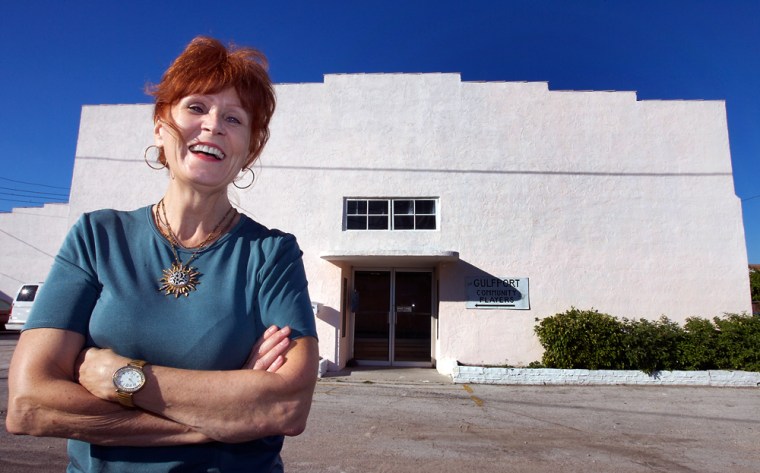Irwin Belk normally isn't shy about his philanthropic endeavors. But when he decided to recognize his deceased father-in-law with a statue at Purdue University, the retail magnate wanted to do it anonymously.
"I didn't want my name on it," he said from his home in Charlotte, N.C. "I wanted to honor my father-in-law.''
But during the November 2005 dedication of the $500,000 statue of a boilermaker, the secret came out. "My brother-in-law squealed and recognized me,'' said Belk, a former owner of Belk Inc., a department store chain. "I coulda kicked him.''
Belk chuckles over the incident now, but fundraising professionals say honoring the wishes of donors who want to remain anonymous is no laughing matter.
It's a matter of trust, said Rebecca Newman, associate vice chancellor of development at the University of California, San Diego. Institutions work hard to assure donors they will respect their wishes and be good stewards of their money, she said.
Privacy desire ‘needs to be respected’
"If people desire to maintain some kind of privacy, it needs to be respected,'' she said.
The holiday season is the busiest for charitable giving, and even big money donors — who are more likely to give anonymously — make end-of-the year gifts.
"They're thinking about their taxes too,'' said Susan Avila, vice president of advancement for the California College of the Arts in San Francisco.
Donors have various reasons for requesting anonymity. Many are simply trying to avoid solicitations from other organizations. Sometimes, donors want to hide the gifts from their children or from other charities they routinely support. Whatever their reasons, they're satisfied to take the tax deduction without fanfare.
The outing of anonymous donors is rare, experts say. Many organizations do, however, urge donors to go public.
Institutions can leverage money better if there's a name attached to it.
"It adds luster to a project,'' said Newman.
Donor's identification led to bad feelings
Purdue spokeswoman Jeanne Norberg said she wasn't aware of the incident with the boilermaker statue, in honor of Belk's father-in-law, inventor Carl C. Grotnes. But she knows what can happen when donors feel their confidence has been betrayed. Years ago, one university supporter asked that the amount of his gift be kept secret. Word, however, leaked out.
"That donor was very upset,'' she said. "That donor is no longer with us.''
There were no hard feelings when a local newspaper reporter recently outed HealthMarkets of North Richland Hills, Texas, as the anonymous donor of $300,000 to a neighboring city's coffers.
"We're not unhappy about it,'' said Michael Boxer, the company's chief financial officer. "It is what it is.''
In April 2005, the company, which sells health plans, sent the city of Bedford a cashier's check after a reduction in property taxes threatened to close the library and pool.
HealthMarkets wanted to help because some of its 1,800 employees live in Bedford, Boxer said.
"The fewer hassles they have in life, the easier it is for them to come to work,'' he said.
HealthMarkets wasn't looking for anything in return and wanted to avoid "political nonsense'' surrounding the tax cut, he said.
"We're still wondering how we got uncovered,'' Boxer said.
Small-town contributor yields to persuasion
Eileen Navarro, president of the Gulfport, Fla., Community Players, managed to persuade donor Dawn Fisher to go public when Fisher approached her about quietly donating $250,000 to the troupe.
"This is going to be hard to keep secret,'' Navarro remembered thinking at the time. "This is a small town.''
Fisher agreed to be recognized at the troupe's annual banquet, and Navarro got the pleasure of introducing her "because I knew people would want to know who is this person,'' Navarro said. The group used the money to pay off the mortgage on a building used for rehearsal space and dinner shows.
At Middlebury College in Middlebury, Vt., officials have persuaded big donors to reveal themselves to small groups of their peers. During meetings, the "anonymous donors'' share their reasons for supporting the university and ask for their friends' support.
Such a compromise allows donors to shield themselves from other organizations seeking donations while giving the school the opportunity to generate more money, said Michael D. Schoenfeld, Middlebury's vice president for college advancement.
After one recent meeting, he said, a donor who was considering giving $10 million doubled his gift, Schoenfeld said. Others also opened their wallets.
"It was very much related to the fact that they were impressed and honored to be part of this plan,'' he said.
Occasionally, anonymity can help generate more donations. For fundraisers trying to save the Fox Theater in Spokane, Wash., a secret donation created a stir that led to more gifts.
"Having an anonymous donor, in this case, gave us an air of mystery,'' said William A. Simer, who headed up the capital campaign. "It caused a lot of discussion. People wondered, 'Who is this person?'''
It was Myrtle Woldson, 97, who gave the Spokane Symphony $3 million to help buy the historic theater, but only recently acknowledged making the gift. The theater is being named for her father, Martin Woldson, a railroad builder.
